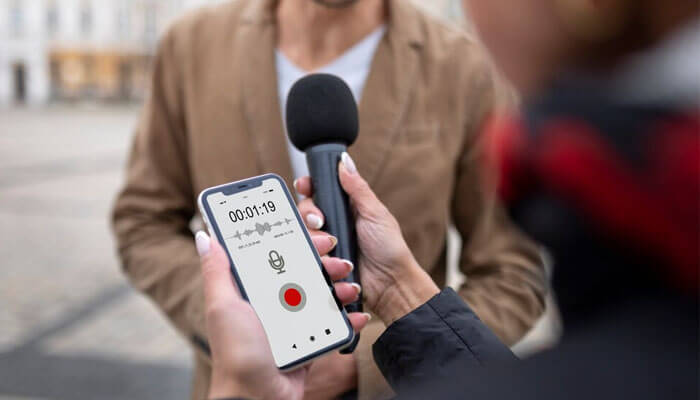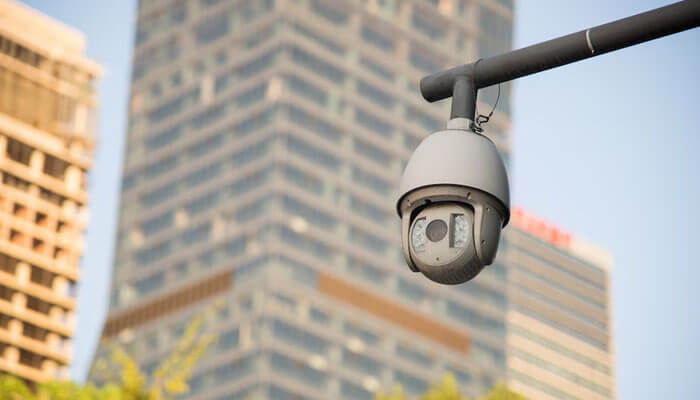Can i sue someone for recording me without my permission in New Jersey? The answer is Yes. The laws in New Jersey regarding the conversation recording are complex. While it could be legal to record a conversation in New Jersey for civil purposes, the rules governing law enforcement are more stringent. It becomes considerably more complicated when the parties are in different states as you must consider other state and federal laws.
State laws can differ significantly regarding the admissibility of such evidence in court as well as the legality of recording. You should consult a lawyer to learn about your legal rights before recording a conversation or if you were recorded without your permission. Many people have various queries regarding New Jersey recording laws like, ‘Can I record a conversation in New Jersey?’ ‘Can I sue someone for recording me without my permission in New Jersey?’ and many more. This article provides you detailed information about New Jersey recording laws.
Can I Sue Someone for Recording me Without My Permission in New Jersey?
Yes, but first let us know the New Jersey recording laws and to which state does it belong to either one party consent state/ two party consent state.
Is New Jersey a One Party Consent State?
New Jersey recording law needs one-party consent. In New Jersey, it is illegal to use any device to record or share oral or electronic communications without the consent of at least one of the participants. This means that in New Jersey, you can legally record a conversation offered if you are a contributor or have prior consent from one of the involved parties, assuming no criminal intent.
Is it Legal to Record a Conversation in New Jersey?
Conversations that you are not a part of may not be recorded, obtained, shared, or used without at least one party’s consent. However, New Jersey law provides an exception for conversations in which the person or people communicating are in an environment where they should not be expected to maintain their privacy, that does not include electronic communications.
According to the Federal Communications Commission (FCC), if you are a third party and require permission from the people having the conversation, you can get consent to record by:
1. Getting written or verbal consent before the recording is made.
2. Before the conversation begins, a verbal alert is played.
3. At regular intervals during the conversation, an audible beep tone is repeated.
Exceptions to One-Party Consent Rule:
One-party consent law in New Jersey provides flexibility, but there are also limitations against abuse and privacy violations. A notable exception is when it comes to law enforcement activities. If police officers may obtain a warrant, in some situations, record conversations without any party’s consent. In criminal investigations, this is usually observed when surveillance is required to get evidence.
Additionally, the rule’s applicability may be limited in settings where there is a legitimate expectation of privacy. For example, recording medical consultations or legal discussions without consent may violate confidentiality agreements, even if only one party is present. Courts often evaluate elements such as location and substance of the conversation when determining whether privacy expectations were breached. This strategy aims to protect sensitive interactions that require discretion.
New Jersey Video Recording Laws:
It is illegal to take pictures of someone else private areas or sexual acts, record them on video, film, or in any other way reproduce it without their consent. For example: To film anyone using a public restroom is illegal because a restroom is an area where people can display their private parts and where there is a reasonable expectation of privacy.
It should be noted that retail establishments are permitted to observe, photograph, record, film, videotape, or otherwise reproduce the image of individuals in the foyer, access way, or entrance to a dressing room or fitting room as long as they prominently display a notice informing the public to the surveillance activity.
However, conducting surveillance activities within a private dressing cubicle in a dressing room or fitting room is illegal. A photo or video consent form should be filled by the individual likeness that you are recording for business purposes to ensure that you have their consent.
Surveillance cameras in New Jersey:
Surveillance video recording is completely legal. New Jersey law, however, prohibits you from taking pictures of someone else’s or your own private areas. This means that you can install security cameras in places where people have no expectation of privacy.
Additionally, as New Jersey is a one-party consent state, you will need to obtain at least one party’s consent before you can record audio. As a result, it is best practice to avoid recording audio while using surveillance cameras.
Legal Implications of Illegal Recording:
In New Jersey, illegal recording can have serious consequences on a civil as well as a criminal basis. The penalties imposed by the state’s legal framework deter illegal recordings. Those found guilty of recording without the required consent may be punished with imprisonment, penalties, and lawsuits. The circumstances and the purpose of the recording frequently determine the severity of the consequences. For example, there may be more serious consequences if a recording is used for blackmail.
Another choice for affected people to seek remedy is through civil lawsuits. Unauthorized recording victims can sue for the damages, alleging emotional distress or an invasion of privacy. In these situations, it is frequently necessary to demonstrate how the plaintiff was directly impacted by the illegal recording. This part of the law emphasizes how crucial it is to uphold privacy rights and the possible financial and reputational harm which may come from noncompliance.
Recording Law Penalties:
1. If you record an oral or electronic conversation, it is illegal and is a third-degree crime.
2. Video recording laws in New Jersey are classified as third-degree crime with a maximum fine of $15,000 and a punishment of three to five years imprisonment.
3. It is a third-degree crime to disclose (sell, make, distribute, disseminate, or show) content that was collected in violation of New Jersey’s video recording laws without the consent of the person or people it depicts.
4. In addition to the penalties listed above, this offense includes a maximum fine of $30,000.
Conclusion:
Although recording a conversation could seem like a good idea, there are some serious risks involved. It is best to speak with an attorney regarding the legalities of recording and using statements made in court. I hope this article helps you to know the answer for the query, ‘Can I sue someone for recording me without my permission in New Jersey?’ and also about the New Jersey recording laws.





